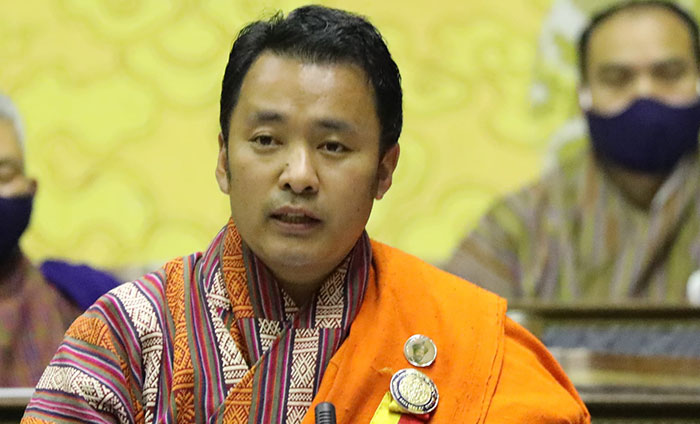Thinley Namgay
The shortage of workers was one of the reasons for the delay in construction of Samrang-Jomotshangkha highway in Samdrupjongkhar. Such issues were widespread despite the government’s efforts in recruiting an adequate workforce.
Jomotshangkha-Martshala’s Member of Parliament (MP), Norbu Wangzom, said that there were insufficient labourers in both government and private projects in the country amid Covid-19 pandemic. “On the other hand, we have unemployment issues and a rise in the unemployment rate.”
She asked the Labour Minister what were the government’s strategies and plans to balance these issues. “How would the Build Bhutan Project (BBP) help address the labour shortage for the construction of Samrang-Jomotshangkha highway.”
The 58km highway stretch, the construction of which started in 2016, begins from Rongchuthang in Jomotshangkha to Samrang in Samdrupcholing drungkhag. The Department of Roads executed the first 47km stretch and handed the remaining work over to Project Dantak.
Labour Minister Ugyen Dorji said that the ministry had recruited 800 workers through BBP since its inception on July 1.
Lyonpo said this at the National Assembly yesterday while responding to MP Norbu Wangzom’s question regarding BBP and unemployment.
According to Lyonpo, around 50,000 foreign workers used to work in the country before the pandemic. “However, due to the pandemic, only around 10,000 foreign workers are in the country at the moment.”
Labour ministry started the BBP to address the labour shortage and unemployment problems.
“We have limited domestic workers in the country. Moreover, there is a lack of interest and experience to compete with foreign workers,” said Lyonpo.
The ministry permitted more than 900 skilled foreign workers in the country amid pandemic to help Bhutanese build the skills.
Lyonpo said: “Other developmental works related to hydropower, roads, schools, hospitals and other constructions were all deferred due to the Covid-19.”
Meanwhile, Wamrong’s MP, Karma Thinley, also questioned the minister on the outcomes of Technical and Vocational Education Training (TVET).
MP Karma Thinley said: “During the field visits by the members from the community and culture committee, they found that vocational training centres are still using the old learning equipment.”
Lyonpo Ugyen Dorji said that within two years, labour ministry provided jobs to more than 3,000 people through TVET and BBP. “This is not enough for the country. Ministry is building new infrastructure at Serbithang and Samthang to recruit another 300 and 100 trainees respectively.”
Labour ministry also developed TVET curriculum for 36 new subjects and also reviewed 12 subjects within two years.
Starting this year, the labour ministry, in collaboration with the education ministry gave 30 percent of the scholarships in TVET through the Department of Adult and Higher Education.
To develop our vocational culture, around 10 or 11 vocational expertise from Korea, Thailand, Austria, Germany and the United Kingdom were also recruiting in the country.
“The Asian Development Bank also agreed to fund USD 40 million to develop TVET,” said Lyonpo.


